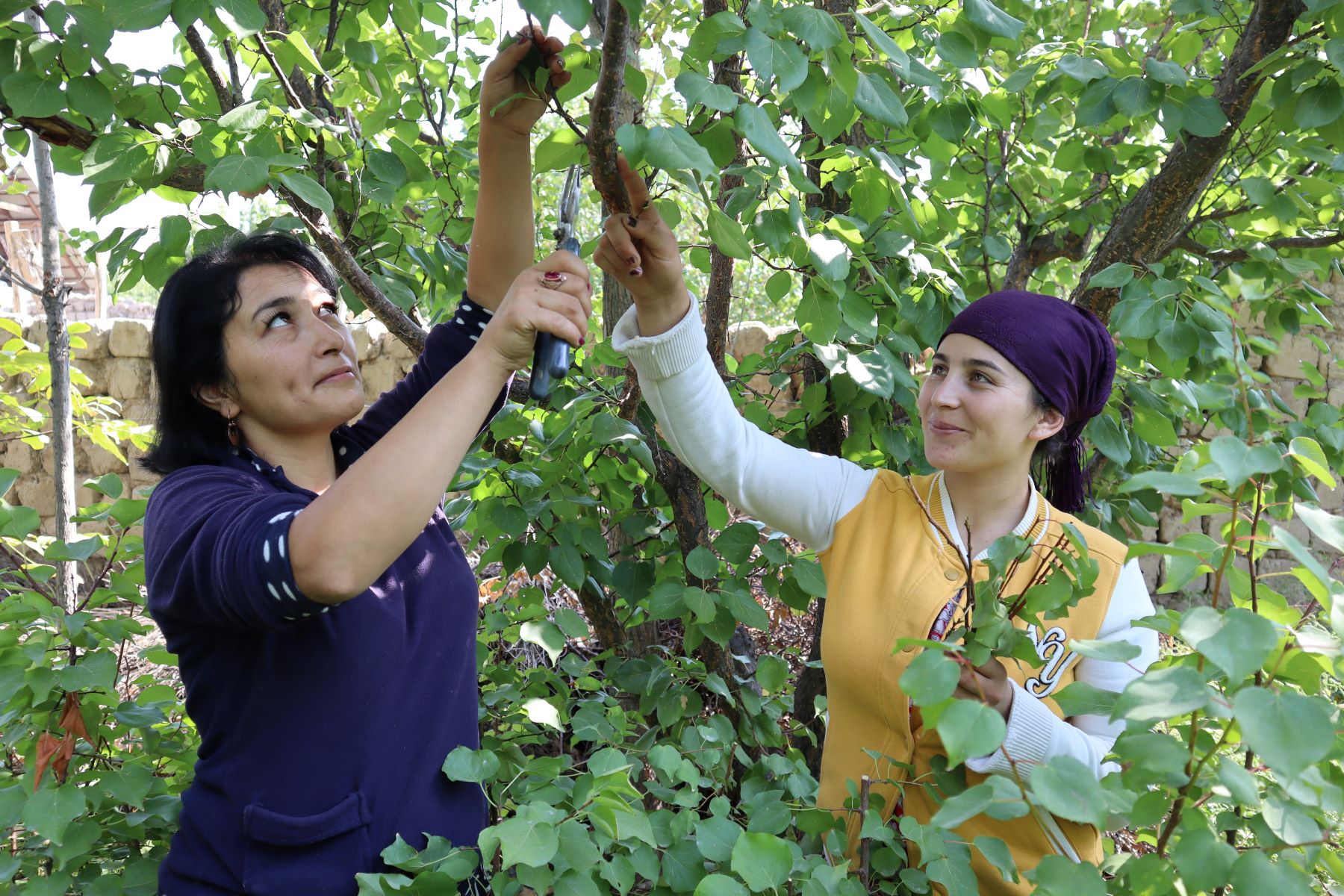
In the wide valleys and rolling hills of Tajikistan, where apricot blossoms paint the landscape in hues of pink and white, a remarkable transformation is underway. Supported by the USAID-funded Market Driven Rural Development (MDRD) Activity, local grafting and pruning groups, many of them family-based, are mastering the art of tree care. Their endeavors aim not only to boost yields and ensure sustainable agricultural practices but also to bring profound changes in orchard management.
Overcoming Obstacles
“For far too long, we’ve faced the tough reality of limited job options close to home. We’re now seeing firsthand how grafting and pruning are breathing new life into our orchards. Not only does this mean we can earn a living while being close to our families, but it also ensures that our communities thrive right here at home. Job-seeking migration to Russia is no longer a choice for us,” shares Ahmad Zohidov, a grafting group leader from Isfara championing the cause for change already for almost a decade.
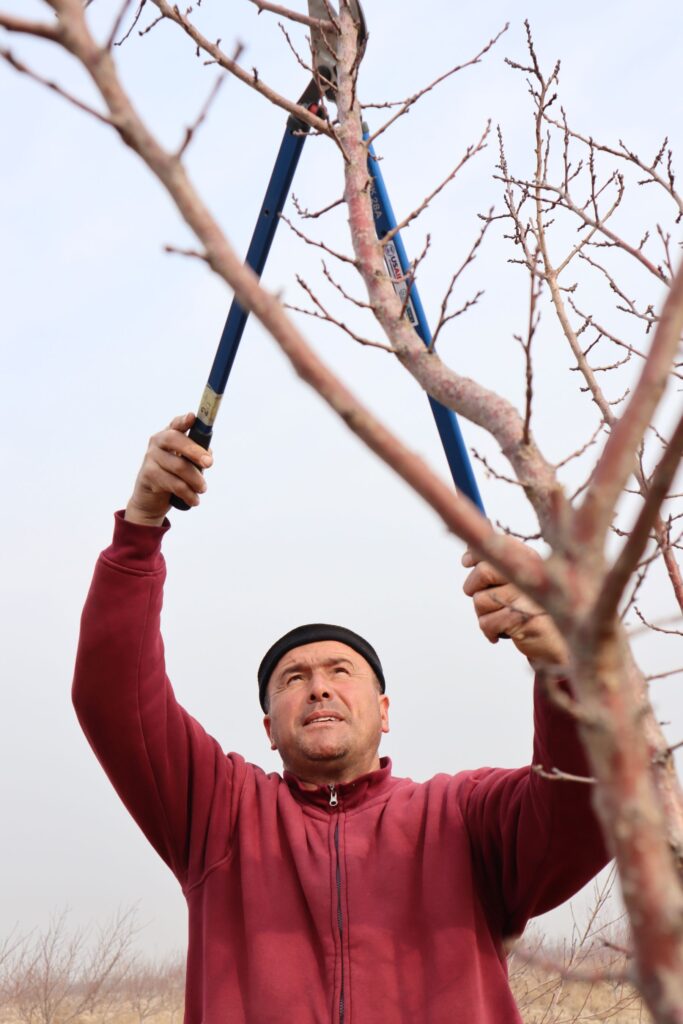
Tajikistan’s orchard farmers have long grappled with challenges stemming from outdated techniques, limited resources, and a lack of knowledge about innovative practices. The allure of migration to Russia has been a common pursuit for men seeking employment opportunities. However, this path sometimes leads to deportation and a struggle to find stable work upon returning home. Servicing orchards is a rare option in their communities, providing opportunities for men to earn a livelihood closer to home.
In Isfara and Asht, the epicenters of apricot orchards in Central Asia, the pruning and grafting groups play a crucial role in treating and shaping trees, improving germination, and introducing new varieties. Removing the constraints they face will empower them to provide better services and increase the sector’s productivity.
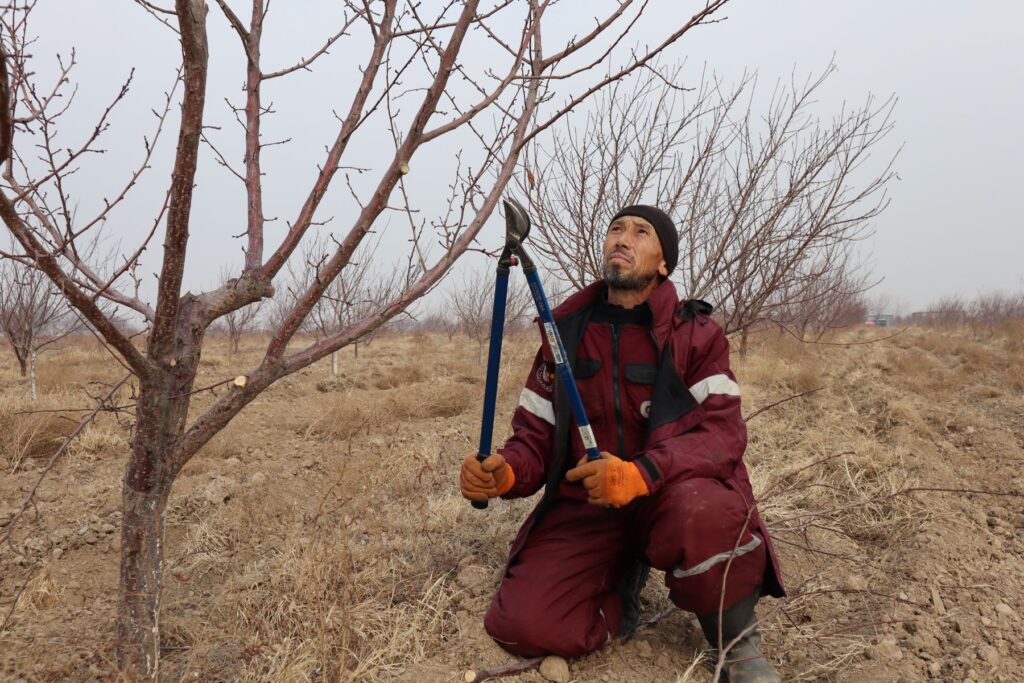
Cultivating a New Culture
In September 2023, right before the winter tree care season, MDRD provided cost-sharing support assisting predominantly family-based harvesting groups in acquiring 40 high-quality grafting and pruning tools from the United States. The tools are completely new to the Tajikistan market, allowing for safer pruning and grafting of trees, improving the quality while expediting the work process by being easier to manage. Embracing innovation, farmers eagerly adopted these tools, recognizing their potential to drive significant improvements in orchard management.
“They are the best tools, not available in Tajikistan market at all. They are lighter, sharper, and do not make us feel tired. Thanks to our new tools, our efficiency has tripled. What once took us three days, we now accomplish in just one”, Ahmad expresses his delight.
This improvement in quality and accelerated pace of work has attracted more clients as well.
Ahmad adds: “These days, work orders come in nearly every day, even from neighboring districts. In past seasons, we typically pruned 30-40 hectares of orchards, but this winter, we’ve tackled already nearly 80 hectares.”
These pruning tools have left a long-lasting impact on their work.
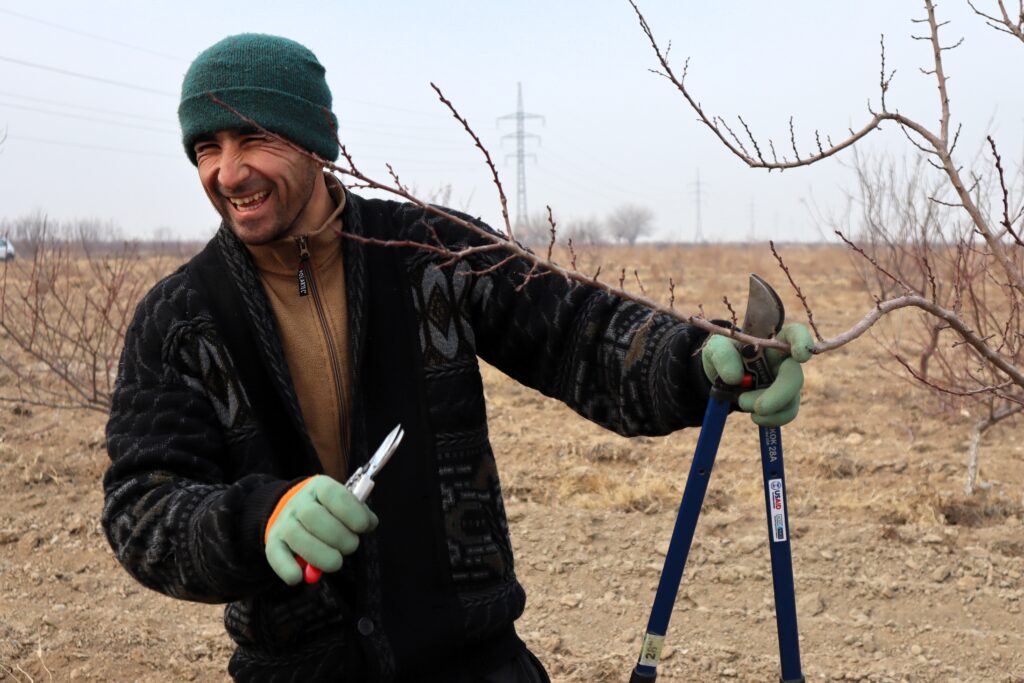
“MDRD didn’t just give us tools; they gave us hope and a vision for a better future,” says Ahmad’s son, Said Zohidov, witnessing the transformation firsthand.
Growing Knowledge and Skills
However, tools alone are not enough. Investing in comprehensive training programs led by seasoned experts, including American professors, has been integral. From mastering pruning techniques to learning the art of grafting, farmers have embraced learning with enthusiasm and determination.
“The training we received wasn’t just about farming; it was about empowerment. It equipped us with the skills and knowledge needed to maximize the potential of grafting and pruning,” reflects Ibodat Nusarova, a family-based grafting group chief in Asht.
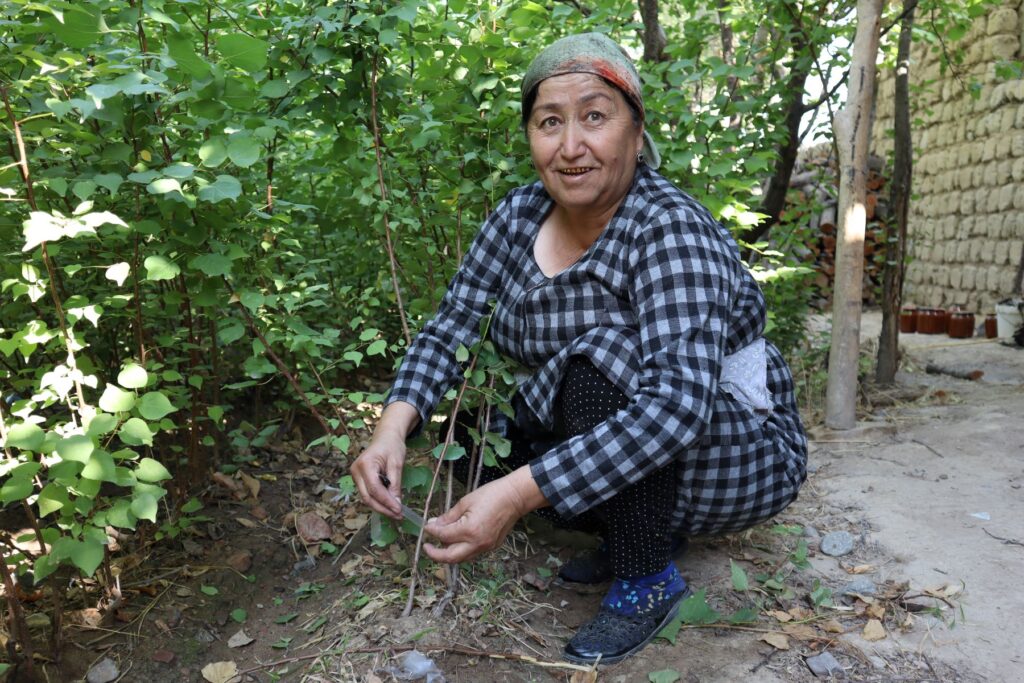
A Brighter Future for Agriculture and Families
With the adoption of modern tools and techniques, these groups have experienced a noticeable and sustained increase in their income.
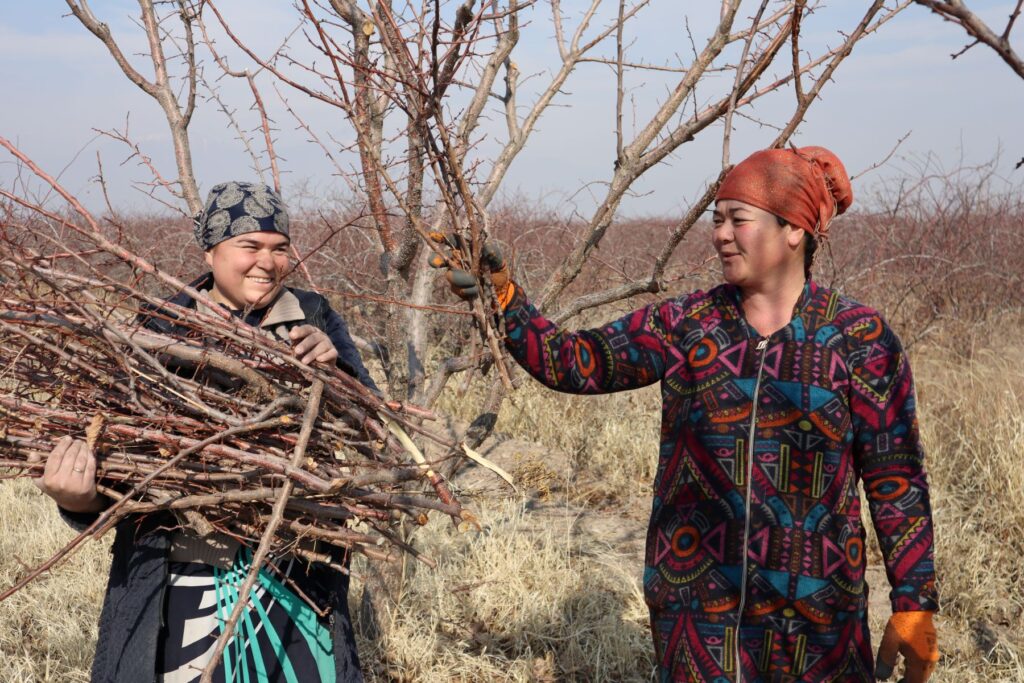
However, the impact of MDRD’s intervention extends beyond individuals, breathing new life into rural economies and fostering resilience within communities. The results have been transformative, with orchards now flourishing with renewed vitality. Increased productivity, improved crop quality, and expanded market access have become the new norm.
As the sun sets over the apricot orchards of Tajikistan, a new chapter unfolds: this story spreads and serves as a powerful testament to the importance of modern agricultural practices in driving sustainable development and economic growth.
Learn more about the Market Driven Rural Development Activity.
Learn more about our work in Tajikistan.





